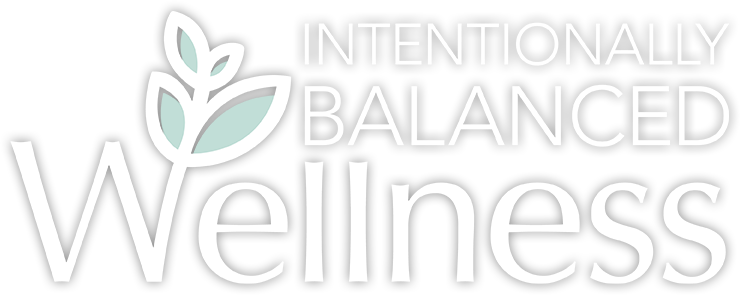You know the feeling you get when your mind is reeling, and it turns into worry or fear…it’s anxiety. Growing up, I don’t remember my peers or adults complaining about anxiety much, but oh boy it’s all around us now! I had a quick and hard lesson into anxiety when it hit me as a young adult. Once I recognized what it was, I implemented a care plan for anxiety that included functional nutrition strategies and I tackled it head on. Now I help women (and the occasional man) tackle it with success too!
The growing field of functional nutrition offers complementary strategies for managing anxiety. By addressing individual biochemical needs, functional nutrition helps create an effective, personalized care plan for anxiety, emphasizing long-term emotional balance.
What Is Functional Nutrition?
Functional nutrition is a holistic, personalized approach to health that views the body as an interconnected system. Instead of focusing solely on calorie counts or macronutrient intake, it aims to identify and address the root causes of health issues. By considering genetics, lifestyle, diet, and environmental factors, functional nutrition seeks to restore balance and optimize overall health.
Unlike conventional approaches to nutrition, which often emphasize the same diet for everyone, functional nutrition includes individuality and uniqueness in each person. For example, someone experiencing anxiety may have underlying conditions such as nutrient deficiencies, inflammation, or gut imbalances contributing to their symptoms. Functional nutrition looks beyond the surface, doesn’t just recommend a medication to cover each person, but helps to address unique contributors, tailoring strategies to each person’s needs.
The firm belief of functional nutrition is that food can act as medicine. Whole, nutrient-dense foods are viewed not only as sustenance but as tools to support the body’s natural healing processes. This approach is particularly beneficial for mental health challenges like anxiety, where diet and lifestyle play significant roles in mood regulation.
What Makes Functional Nutrition Different Than Conventional Nutrition?
The approaches to functional nutrition and conventional nutrition differ significantly. Conventional nutrition usually throws a blanket over everyone and recommends the same thing for each person. For instance, it might recommend a daily intake of specific macronutrients or promote the benefits of fruits and vegetables without delving into individual needs.
Functional nutrition is deeply individualized. It considers the complexities of human biology, including how different systems—such as the gut, brain, nervous and immune system—interact. Functional nutritionists, like me, use detailed health histories, laboratory testing, and lifestyle analysis to craft personalized dietary plans. This level of customization sets functional nutrition apart, as it aims to address not only symptoms but also the underlying factors driving health concerns.
Take anxiety, for example. Conventional nutrition may suggest general practices like cutting back on sugar or caffeine, which are sound recommendations. However, functional nutrition goes further by investigating whether nutrient deficiencies (e.g., magnesium or B vitamins), inflammation, or gut imbalances could be exacerbating anxiety. It then provides tailored interventions to support emotional well-being.
What Is a Functional Nutrition Care Plan for Anxiety?
A functional nutrition care plan for anxiety focuses on enhancing brain health, balancing stress hormones, and improving gut function. Here’s how it works:
A Care Plan for Anxiety Starts with Balancing the Diet
Blood sugar fluctuations can directly affect mood and exacerbate anxiety. A functional nutritionist might recommend a diet rich in proteins, healthy fats, and fiber to stabilize blood sugar levels throughout the day.
Supporting the gut-brain connection which is an axis of communication linking gut health with mood regulation. Research suggests that gut imbalances, such as an imbalance in gut bacteria, can influence anxiety symptoms. A care plan for anxiety might include probiotic-rich foods like kefir, yogurt, and kimchi, as well as prebiotics found in garlic, onions, and bananas, to nurture a healthy microbiome.
Targeting nutrient deficiencies like magnesium, zinc, omega-3 fatty acids, or B vitamins, is included in a care plan for anxiety. These nutrients are often linked to anxiety if deficient.
Chronic inflammation has been linked to mental health challenges, including anxiety. Functional nutrition encourages an anti-inflammatory diet centered around whole, unprocessed foods.
A Care Plan for Anxiety Takes into Consideration Supplements
Functional nutrition not only emphasizes stress-reducing foods but also adaptogenic herbs and supplements. Adaptogens like ashwagandha and rhodiola can help modulate the body’s stress response, making them valuable additions to a care plan for anxiety. The right kind of magnesium can help calm the mind and relax the body.
I have a few supplements I love to use with my clients linked here. Check it out and let me know which ones you like or have tried. When taking supplements, don’t expect an immediate improvement. Supplements help replenish the body and work with the body so overtime you’ll see the difference. Also, don’t feel like you have to take a lot of different ones. Try one or two for a few months before changing to another or adding another.
A Care Plan for Anxiety Addresses the Nervous System
You know I love mindfulness, breathwork and contemplative prayer!! In functional nutrition, dietary strategies are complemented by lifestyle modifications. Stress management techniques such as mindfulness, breathwork, and regular physical activity are often integrated into care plans to enhance overall effectiveness.
Functional nutrition empowers individuals to take a proactive role in their health, addressing the root causes of anxiety rather than merely managing its symptoms. By focusing on personalized strategies that optimize brain health, gut function, and overall balance, this approach offers a sustainable path to emotional well-being. If you’re seeking to create a care plan for anxiety, consulting with a functional nutritionist can provide the tools and insights needed to support lasting mental health.



